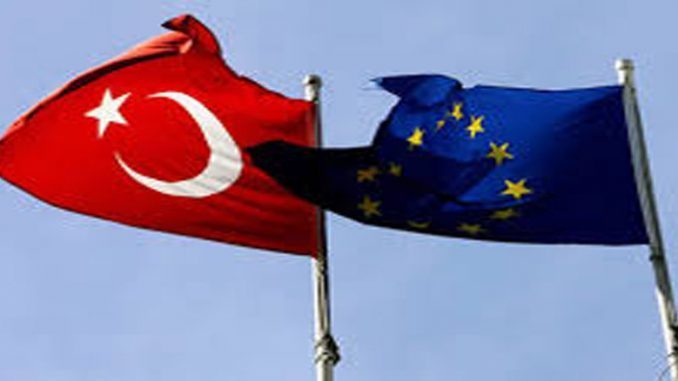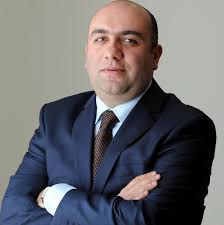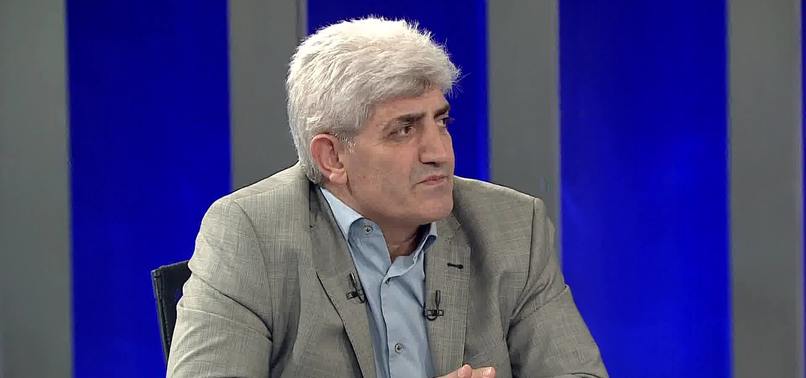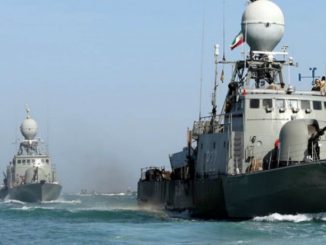
 BY: ÇETİNER ÇETİN*
BY: ÇETİNER ÇETİN*
It seems that the strife between Turkey and the EU will not end soon. The hostile attitude of Germany, the Netherlands and Switzerland is forcing Turkish President Recep Tayyip Erdoğan to respond harshly. However, Erdoğan’s reaction to European leaders is not groundless this time. Knowing that demographic structure is a very vulnerable issue for the Old Continent, Erdoğan can smother Europe with refugees whenever he wants.
Turkey has suffered great losses because of the influx of refugees. But, it is high time to turn this advantage into an advantage now. In fact, the number of Syrian refugees in Turkey has approached three million, with many of them dreaming of reaching the haven on the opposite side of the sea. Turkey has become the easiest bridge for refugees to actualize this dream, and at the same time, it is the most dangerous bridge for concerned Europeans. The deal, which was signed one year ago, succeeded in restricting refugee migration. In other words, it was understood that Turkey could fulfill its commitments – if it pleased. However, Europe has not yet taken the steps required by the deal, so much so that it has ignored and come to criticize Ankara in a threatening manner. Thus, Ankara has had a trump card that it could put forward against those who are worried about the flood of migrants. Erdoğan will not jeopardize this deal signed with Europe, as he wants it to remain as a sword that he can swing anytime and a pressure instrument that he can use anytime – which is the best trump card for Ankara.
Erdoğan adopts a “carrot and stick” approach toward Europe to achieve his goal. In other words, he lambasts them, but does not take a step to actualize his promises. However, this does not mean that he will not take a step against Europe, as Europe is trying to incite Ankara as much as it can – which will eventually harm Europe itself.
Erdoğan accuses Germany of Nazism as the West characterizes him as a “dictator.” Turkish Interior Minister Süleyman Soylu is threatening to send 15,000 refugees to Europe every month, as the Netherlands does not allow Turkish ministers to carry out propaganda activities under the referendum campaign. In response to Turkey’s efforts to reinstate capital punishment, Germany is not extraditing the opponents demanded by Turkey. Brussels is warning against the suspension of Turkey’s EU accession negotiations. However, these disputes are not going beyond a verbal quarrel. On the other hand, Erdoğan has signaled that he would take concrete steps, saying that he could decide to hold a referendum on the EU membership process after the April 16 constitutional referendum.
The tension between Erdoğan and Europe will not end as long as the refugee threat exists. Turkey is moving away from its European dream with every passing day. This is a preference, as Turkey has been sick of waiting at the EU’s door for years. And it is aware that Europe will make it strive after it many more years. In other words, Turkey does not want to beat a dead horse anymore. On the other hand, the worries of the Old Continent will not stop as long as the elderly population constantly increases.
The agreement signed between Turkey and Europe resulted in success. Ankara abided by the process as much as it could. As a matter of fact, only 3,629 refugees were able to reach Greek islands this year. This shows that Turkey’s threats must be taken seriously.
The concern is not only about feeding refugees, but also the possible cultural change to be created by Muslims. The number of Muslims has greatly risen in some European cities – which might foreshadow rapid social changes. EU countries have begun addressing not only economic impacts of the process, but also political and sociological impacts of it.
It might be thought that Muslims’ migration to Europe is a planned conspiracy. In fact, anyone who is in trouble or stalemate has a feeling that there is a conspiracy against himself. Some reports published in Israel indicate that Muslims are striving to come to power by infiltrating political parties in Europe. Statistics reveal that there are rising concerns and fears that third and fourth generations will be more religious and radical.
While Europe is trying to close low birthrates with high birthrates in Eastern Europe, it sees that it suffers from the influx of Muslims. This is because Muslims’ birth rate is above the European average. While a Muslim woman has three children on average, the birth rate in European women does not exceed 1.6. In this way, the number of Muslims will be twice as many as the Europeans, and the producing and decision-making youth will consist mostly of Muslims.
So, it would not be right to say that it is a coincidence that far rightists are receiving acceptance from European voters.
After the Court of Justice of the European Union (CJEU) banned headscarf at work places, Erdoğan accused Europe of launching “Crusades” against Muslims and called on millions of Turks living in Europe to have not three, but five children, and to send their children to the best schools, noting that they are “the future of Europe.”
It is true that this conflict has not gone beyond a verbal clash. However, the cultural meaning it bears is not temporary, but is full of deep and significant messages.
EU THROWING IN THE TOWEL UK SEEKING NEW ROADMAP
Brexit is officially starting this week. It is time for the U.K. to revive its commercial and diplomatic relations with the whole world, especially Turkey.
The potential of the U.K.’s relation with Turkey has been short of breath because of Turkey’s EU negotiations which have been left without oxygen for many years. Any rational people from both sides did not believe that Turkey would be able to enter the EU. However, the possibility of membership was ambitiously encouraged and kept alive for years.
It is ironic that the U.K. is one of the countries with the greatest support for Turkey’s EU accession. This was politically for the good of the U.K. However, current developments reveal that it does not seem to be the same for the EU as a whole. The Berlin-Ankara relations have almost collapsed. We are witnessing that the police are using disproportionate force against Turks in European cities. The violent and evil efforts to create a sense of political instability in Turkey instigated by the deadly attacks of terrorist organizations such as the Kurdistan Workers Party (PKK), Gülenist Terror Group (FETÖ) and Daesh cannot be interpreted independently of the unsuccessful diplomacy of Europe.
I know how tedious and wearisome the EU membership talks are from the bureaucratic point of view. They are subtracting the delicacy of diplomacy to the 170,000-page acquis communautaire’s minor details about internal policy. This leads to vain hopes on the one hand, and to xenophobia on the other. They are planting the seeds of people acknowledging truths and getting frustrated. So, it becomes inevitable for them to receive their just deserts after a certain point. Unfortunately, it is time for Turkey and the EU to experience this.
The U.K.’s secession from the EU will save the EU from interfering in the U.K.’s internal affairs. It will have other benefits as well. For example, it will enable us to throw away the stinky blanket of Brussels which hampers the best diplomatic traditions of Ankara and London. Now we can tear this blanket, burn it, throw it
out of the window and take a deep breath.
It is tragic that Europe does not understand the fact that Turkey, as an ally, is one of the countries with the greatest strategic importance for the U.K. Turkey is one of the countries with the greatest strategic importance for Europe as well. Even the region alone, in which Turkey is located, shows that the importance of Turkey will not decrease, but will increase in years. The world’s breeding ground for war, terror and sectarianism is at the threshold of Turkey. Strategically-thinking Russians could think of working with Turkey which was a more stable country in the region than Europe some time ago. It is our best and only hope to work with Turkey to overcome the fierce battles that have raised hell in the Middle East.
Problems similar to those in Germany-Turkey relations should not be allowed in the U.K.-Turkey relations. Otherwise, it will lead to a catastrophe in terms of both strategy and security. This is already a catastrophe for Germany. The U.K. which has survived all the burden that the EU imposed on it has now a chance to reestablish a diplomatic balance with Turkey. European partners do not have this chance. As last week’s Westminster attacks sadly showed, terror will not divide the U.K. Terror is targeting all of us. However, this goal can be overcome with close cooperation with other countries and the most important of these countries is Turkey.
*Çetiner Çetin is a Turkish journalist. He wrote this article exclusively for the Middle East Observer



